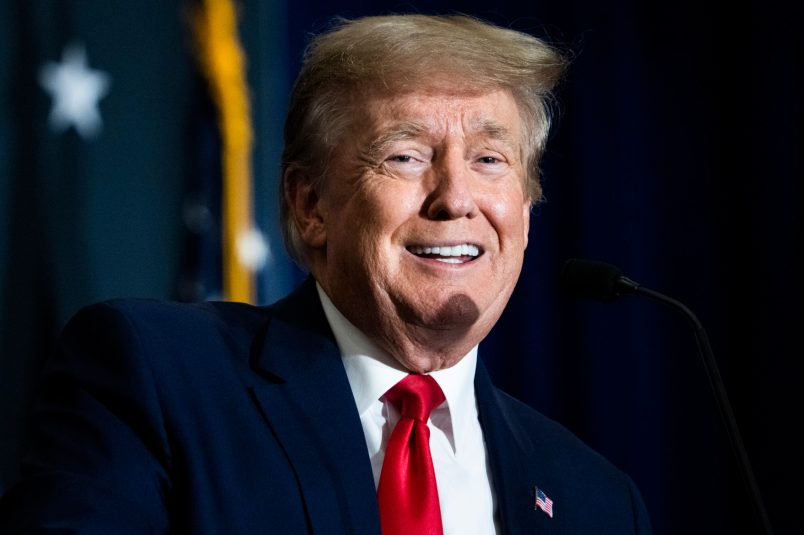We’re covering this in other pieces today. But I want to zoom in on the issue of executive privilege, which Trump’s lawyers have repeatedly invoked in their latest court action. The filing has been mocked, rightly, for various reasons. But I want to zoom in specifically on this issue. Trump claims that many of the documents seized from his estate must be returned to him because they are covered by executive privilege.
This is not how executive privilege works or what it is. Let’s discuss.
Executive privilege is not inherent in any documents. It must be asserted. And it can only be asserted by a current President. This has been obscured to a degree because traditionally current presidents will assert it on behalf of former presidents as a courtesy and because in most cases they argue that the assertion is in the interests of the office of the presidency generally. There is in fact a formal process by which former presidents may object when efforts are made to obtain documents from their time in office. But, critically, those are actually requests to the current president and more specifically those working on his or her behalf. The current President makes the actual decision with his or her authority.
The question has not been extensively litigated, except for in the Nixon era, for the obvious reason that normal presidents don’t generally get into disagreements with their successors about these things. But the Nixon era cases were pretty clear that a former president has no standing to assert such privileges as an ex-President. Indeed, the letter from the National Archives which Trump toady John Solomon released today specifically notes the High Court’s assertion that the “incumbent President should not be dependent on happenstance or the whim of a prior President when he seeks access to records of past decisions that define or channel current governmental obligations.” This point is critical. It isn’t just a matter of bragging rights or pride of ownership. While historians may think otherwise, the reason governments maintain records is that they are necessary to the current conduct and decision-making of government. Those decisions are ones entrusted to the current President.
All of these privileges questions originate from doctrines about the separation of powers of the three branches of the federal government, and each branch’s ability to operate in its prescribed manner without undue interference from the others. It certainly cannot be the case that a former President, who is elected to nothing and has no authority at all, has the power to keep records of the United States government secret from the current President to whom the constitution gives authority and responsibility to see that the laws of the United States are faithfully executed. That’s absurd on its face.
A lot of journalists and observers are indulging the idea that Trump may at least in theory have executive privilege claims over these documents. But that’s simply a fallacy. Though every permutation of the question hasn’t been explicitly addressed by the Court, every time the question has been addressed the rights of a former President in this regard have been found to be non-existent. Even legal experts who are most enthralled by the pretensions of executive privilege and most resistant to saying anything in the law has been settled definitively will tell you frankly that it cannot be any other way, just on logical principles. Otherwise you find that the exalted power of the chief executive, with all the responsibilities of enforcing the nation’s laws, serving as the commander-in-chief of its military and more is subject to the whims of a private citizen to have access to the records of his own government. That makes no sense. It turns the entire idea of executive privilege on its head. It is absurd on its face and everyone knows it.






